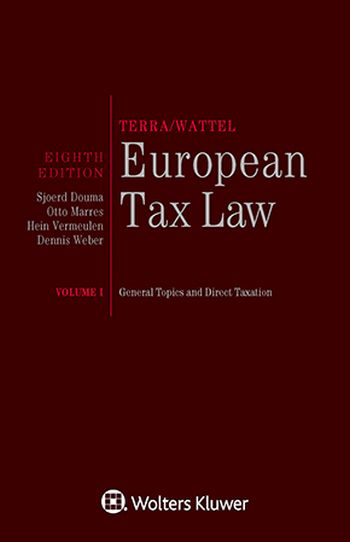
This leading textbook brings its comprehensive and systematic survey of European Tax Law up to March 2022. With its critical discussion of the EU tax rules and the European Court’s case law in tax matters, it surpasses every other textbook on EU Tax Law in its clarification and analysis of the implications of the EU Treaties and secondary EU law for national and bilateral tax law. This edition discusses the current negative integration of tax law on the incompatibility of national tax measures with the Treaty Freedoms or the State aid prohibition and the positive integration of tax law measures taken at the Union level and pending proposals for Union action in the area of taxation.
What is in this book:
Volume I includes the following:
(1) The far-reaching consequences of the EU free movement rights, the EU State aid prohibition, the EU Charter of Fundamental Rights, and the general principles of EU law for national tax law, tax treaties, national (tax) procedure, State liability, and relations with third States
(2) Secondary EU law in force and proposed on direct taxes (Parent-Subsidiary Directive, Tax Merger Directive, Interest and Royalties Directive, cross-border tax dispute settlement instruments, the Anti-Tax Avoidance Directive and pending company tax proposals)
(3) (Automatic) exchange of information and other administrative assistance in the assessment and recovery of taxes between the EU Member States
(4) Soft Law on Harmful Tax Competition
Volume II (2021) of this book covers harmonization of indirect taxation, energy taxation and capital duty, and administrative cooperation in indirect taxation.
How this will help you:
This edition will continue to be of immense value to law school and university programmes in (international) tax law, European Union law, and practice. This edition will be a reference book for EU law and tax law practitioners, administrators, academics, the judiciary, and tax law or Union law policymakers.